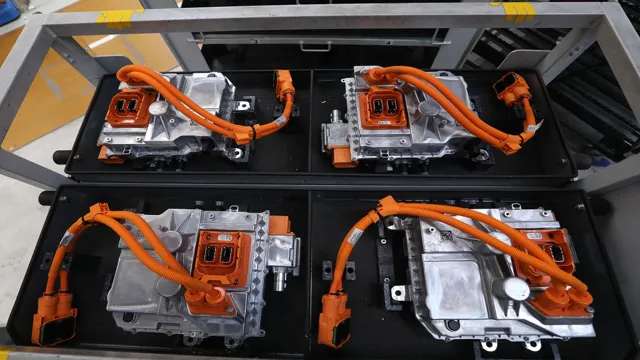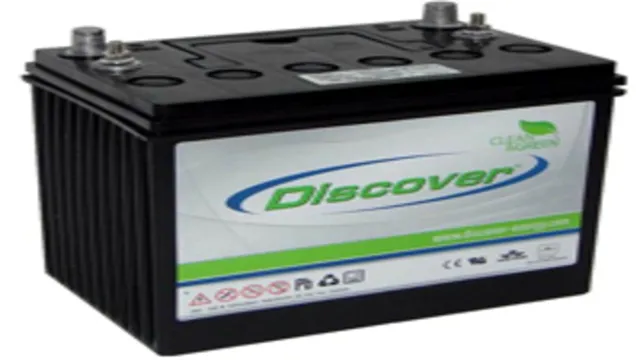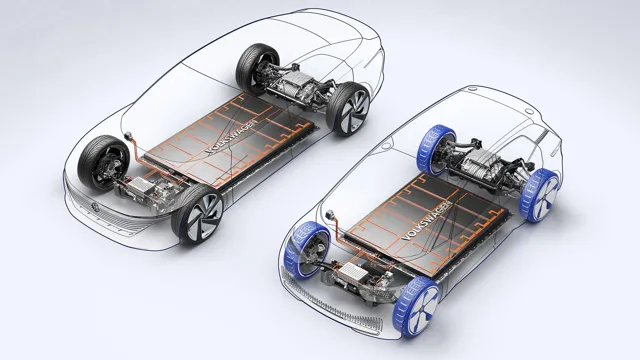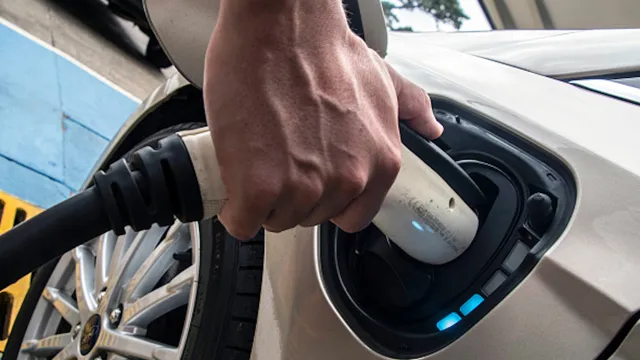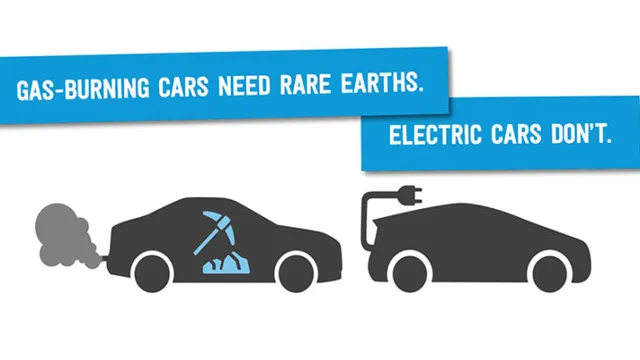Power Struggle: Navigating the Challenges of Electric Car Battery Recalls
As the world continues to shift towards sustainable and eco-friendly modes of transportation, electric cars have emerged as a popular choice for many drivers. With a focus on reducing carbon emissions and conserving energy, electric cars have surged in popularity in recent years. However, with any new technology comes new challenges and concerns.
One of the most pressing issues facing electric car manufacturers is the challenge of battery recalls. While rare, battery recalls can have serious implications for both manufacturers and consumers alike, and addressing these issues is critical to the future of sustainable transportation. In this blog, we’ll explore the challenges of electric car battery recalls and what manufacturers are doing to address these concerns.
Introduction to Recalls and Electric Car Batteries
Batteries have become a crucial part of electric cars, powering them to move forward. However, with increasing reliance on these batteries, the concerns of a recall of faulty batteries have grown as well. Unlike regular gasoline cars, electric cars pose a unique challenge when it comes to battery recalls.
Replacing a battery pack in an electric car can be a complicated and costly process, which can affect the consumer’s confidence in the product. On top of that, the replacement battery might not be readily available, causing an inconvenience for the owner in terms of transportation. Therefore, automobile manufacturers must prioritize their battery production quality control to prevent the possibility of a recall.
However, in case of a recall, electric car manufacturers must act swiftly and effectively to address the issue and increase the safety and reliability of their products.
Explaining Battery Recalls in Electric Cars
Battery recalls are a common issue in the automotive industry, and with the rise of electric cars, they have become a topic of concern for many. In an electric car, the battery pack is essentially the heart and soul of the vehicle, providing power to the electric motor. Therefore, any issues with the battery pack can be a significant safety hazard.
The reasons for battery recalls in electric cars can vary, but they typically involve defects that can lead to overheating, fire, or even explosion. This is why it’s important for electric car manufacturers to be proactive in detecting and addressing battery issues, to prevent any potential harm to drivers and passengers. Despite these safety concerns, it’s worth noting that battery recalls are still relatively rare in electric cars, and the vast majority of electric vehicles on the road are safe and reliable.
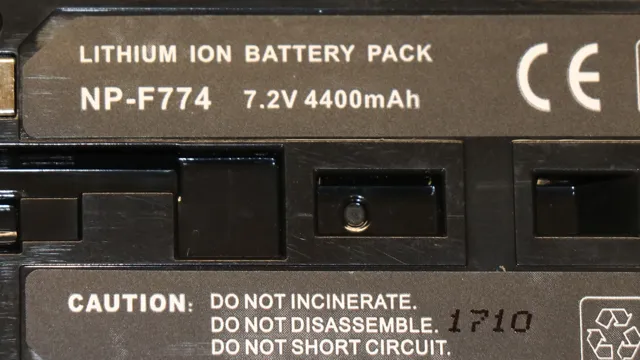
Data on Battery Recalls in Electric Cars
When we think of electric cars, one of the topics that often comes up is battery recalls. A recall is a situation where a product is found to be faulty or unsafe, and the manufacturer issues a notice to return the product or get it repaired. When it comes to electric car batteries, recalls can occur for a variety of reasons, including defects in manufacturing, faults in the design, or issues related to safety regulations.
While the number of battery recalls in electric cars has been relatively low compared to other types of vehicles, it is still a concern for consumers. In recent years, there has been an increase in the production of electric vehicles, and this trend is likely to continue as more and more people switch to sustainable transportation options. It’s important for manufacturers to take responsibility for the quality of their products and ensure that they are safe and reliable for consumers.
Challenges with Battery Recalls for Electric Cars
Battery recalls have become a prevalent concern with the rise of electric cars. While battery technology has advanced significantly over the years, there are still many challenges to be faced when recalling batteries. Firstly, electric car batteries are composed of many small cells, making it difficult to identify a faulty battery.
This can result in a lengthy and costly recall process. Another significant challenge is the recollection of batteries already in use by car owners. This requires car manufacturers to contact owners and convince them to bring their vehicles in for replacements.
Additionally, electric cars are often designed with batteries integrated into the car’s structure. This makes it more difficult to replace a battery. Furthermore, an unexpected battery failure can lead to a rapid discharge, resulting in a dangerous burst of energy that can be hazardous to people nearby.
All these challenges can add up to a complicated and expensive process for recalling batteries for electric cars. Nonetheless, it is essential to address these challenges and ensure the safety of electric car owners to continue the growth of electric car usage and sustainable transportation.
Financial Costs of Recalls for Electric Car Manufacturers
Electric car manufacturers face numerous challenges when it comes to battery recalls. The cost of fixing a faulty battery pack can amount to millions of dollars for a single recall. In addition to the direct financial burden, manufacturers must also deal with the indirect costs of damaged reputation and loss of consumer trust.
Battery recalls are particularly challenging due to the nature of electric car batteries, which require specialized handling and disposal procedures. The process of recalling and replacing a battery pack can take weeks, if not months, which can be frustrating for customers. To make matters worse, some electric car manufacturers have faced resistance from dealerships due to the time and effort required to perform battery replacements.
Despite these challenges, electric car manufacturers recognize the importance of ensuring the safety of their customers and are continuously working to improve battery technology and recall processes.
Safety Risks and Concerns for Electric Car Owners
As electric vehicles continue to rise in popularity, so too do the concerns surrounding their safety. One major challenge faced by electric car owners is the issue of battery recalls. Unlike traditional cars, electric vehicles rely heavily on their batteries, making them a crucial component to the car’s function.
However, these batteries can sometimes be defective, leading to safety risks such as fires and explosions. When a recall is issued for a faulty battery, electric car owners face the burden of having to have the battery replaced. This can be a challenging and expensive process, especially for those who rely on their electric car as their primary mode of transportation.
Nevertheless, battery recalls are necessary to ensure the safety of both the driver and anyone else on the road. It is essential for electric car owners to monitor any news or updates regarding their specific vehicle’s battery and act accordingly.
Impact on Public Perception of Electric Cars
Electric cars have garnered a lot of attention in recent years, but they are not immune to challenges. One such challenge is battery recalls. When a battery in an electric car is recalled, it can have a significant impact on the public perception of electric cars.
Battery recalls can make people view electric cars as less reliable and cause them to question whether they are safe to drive. This can be particularly concerning for people who are thinking about buying an electric car. However, it’s important to note that battery recalls are not unique to electric cars.
All vehicles with batteries can experience issues, and it’s always the responsibility of the manufacturer to ensure that these issues are addressed swiftly and appropriately. So, when it comes to electric cars, the key is for manufacturers to be transparent about any issues that arise and to have a plan in place to deal with them effectively. By doing so, they can help to maintain the public’s confidence in electric cars.
Potential Solutions to Battery Recall Challenges for Electric Cars
Facing the challenge of batteries recall in electric cars requires an innovative and strategic approach. One possible solution is to design cars with swappable batteries. By incorporating removable and interchangeable battery packs in electric cars, manufacturers can reduce downtime and lessen the financial impact of recalls.
Additionally, swappable batteries provide an attractive solution to consumers who have range anxiety. Another potential solution is streamlining the battery supply chain by using standardized battery designs across different vehicle models. This would eliminate the need for unique battery designs in every vehicle, thereby lowering costs and expediting the recall process.
While recalling electric car batteries is undoubtedly a challenge, it is essential to prioritize safety and develop efficient, cost-effective solutions to decrease the risks posed by battery recalls.
Improving Battery Design and Testing
When it comes to electric cars, battery safety is a critical issue. In recent years, there have been several high-profile battery recalls that have raised concerns about the overall safety of electric cars. To address this challenge, researchers are exploring potential solutions to improve battery design and testing.
One approach is to use sensors and other advanced technologies to monitor battery health in real-time. This can enable early detection of potential issues, allowing for proactive maintenance and repair. Another solution is to use alternative battery chemistries that are less prone to hazards like thermal runaway.
By improving battery design and testing, we can boost the safety and reliability of electric cars, which is crucial for accelerating the adoption of this revolutionary technology.
Implementing More Effective Recall Procedures
Electric car battery recalls have become a growing challenge as electric cars become more prevalent on the roads. Implementing more effective recall procedures is crucial for ensuring the safety of drivers and passengers. One potential solution is to improve communication and coordination between car manufacturers, dealerships, and regulatory agencies.
This can involve creating a centralized database for tracking and reporting potential issues, as well as streamlining the process for issuing and fulfilling recall notices. Additionally, offering incentives for drivers to bring their cars in for recall repairs promptly can help mitigate the risk of accidents or other safety concerns. Ultimately, a proactive approach to identifying and addressing potential issues in electric car batteries can help reduce the likelihood of recalls and ensure a safer driving experience for all.
Conclusion: The Importance of Addressing Battery Recall Challenges for Electric Cars
When it comes to electric vehicles, the secret sauce is the battery – a technological feat that has revolutionized the automotive industry. However, like any technology, it’s not without its challenges. With recent recalls of electric car batteries, manufacturers are facing the tough task of ensuring it’s not just the cars that are sustainable, but also the batteries that power them.
But fear not, with the ever-evolving landscape of technology and innovation, the challenges may be daunting, but the journey towards a more sustainable future remains charged with potential.”
FAQs
Why are electric car batteries being recalled?
Electric car batteries are being recalled due to safety concerns or defects that could cause fires or other hazards.
How do electric car manufacturers address battery recall challenges?
Electric car manufacturers may offer battery replacements, repairs, or other solutions to address battery recall challenges. They may also work with regulatory agencies to ensure compliance with safety standards.
Are all electric cars affected by battery recalls?
No, not all electric cars are affected by battery recalls. Only specific models or batches with potential safety issues are subject to recall.
Can electric car owners continue to use their vehicles during a battery recall?
It depends on the severity of the recall and the specific safety risk. In some cases, electric car owners may be advised to avoid using their vehicles until the battery issues have been addressed.

